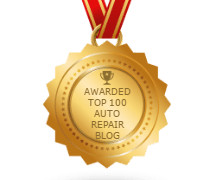Truck Fleet Maintenance in Dallas: Why Is It Important?
RepairSmith
JULY 1, 2025
At 30,000 miles, trucks should undergo a more in-depth inspection, which can include services like an oil change and a fuel filter replacement. This includes a vehicle performance assessment and engine repair if necessary. What Does Fleet Truck Maintenance in Dallas Cost? Wondering what these services might cost you?











Let's personalize your content